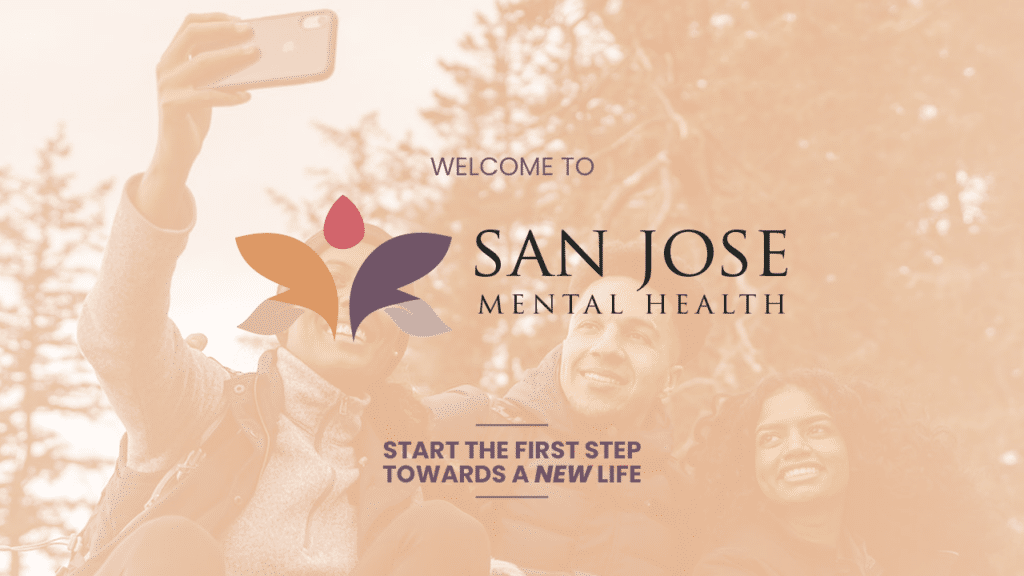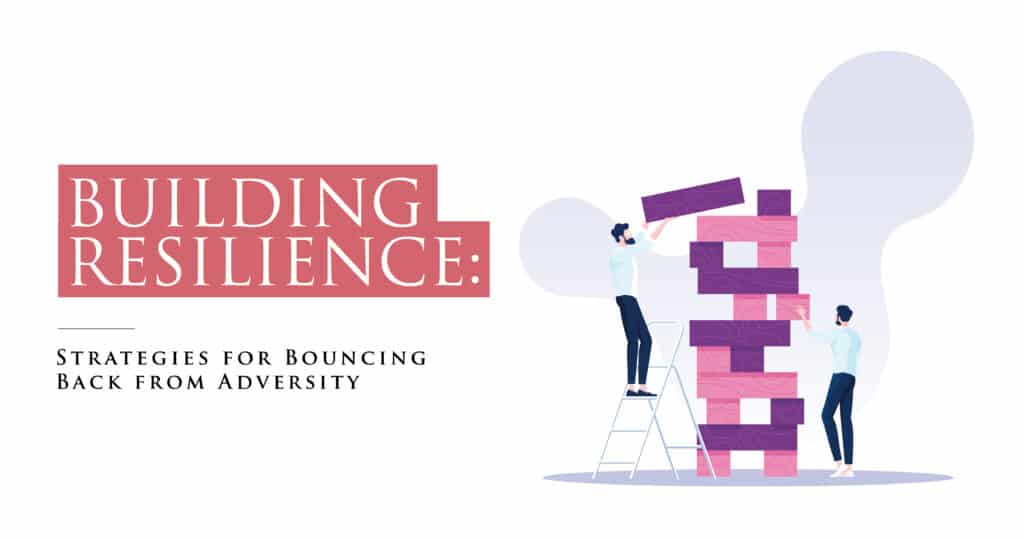Life is full of ups and downs. Sometimes, you get overwhelmed by whatever’s going on, and things may seem too much to handle. We all go through ups and downs, whether small or great, which can erode our confidence and mental comfort. The good news is that there is resilience, which works like a muscle and grows stronger with time.
Essential Takeaways
- Resilience is a Skill: Building resilience isn’t about toughness; it is about how best to navigate difficulties. Anyone can learn to build resilience through practice and introspection.
- Self-care: Properly caring for your bodily, mental, and emotional selves keeps you strong. Other activities that build up to regular self-care will manage stress and boost your resilience.
- Build Strong Relations: Positive social connection constitutes an essential element of resiliency. Surround yourself with well-wishers who will provide you with reinforcement and urge you to get past the challenge.
In this post, we will talk about what resilience is and why it matters, and we will give you some practical strategies to bounce back from adversity. So grab a cup of coffee, get comfy, and get started!
San Jose Mental Health
Understanding Resilience
What Is Resilience?
Resilience is your ability to bounce back emotional elasticity, the capacity to bend without breaking in the face of curveballs life throws your way. It makes you cope with stress, overcome obstacles, and emerge stronger from challenges. Now, although some people appear so naturally resilient, that is only a fallacy. The truth is that resilience is indeed a skill that can be developed.
The Science of Resilience
There has been a great deal of research into resilience. Studies on resilient people have identified some common characteristics, such as emotional awareness, a proactive mindset, and a supportive social network. Resilient personalities often perceive threats rather than challenges in adversities, thus experiencing a greater ability to deal with challenges.
But it’s not just psychological; it’s also physiological. When you are under stress, your body releases cortisol, the stress hormone. Resilient people often have more adaptive responses to stress, returning them to balance quickly after a stressful event. Therefore, regardless of the source, job, loss, and life injuries,, you now know how resilience works and can empower yourself to build that too.
The Importance of Building Resilience
Why Resilience Matters?
Resilience is very important for many reasons. First, it allows a person to deal with life’s inevitable stressors. Rather than getting defeated by adverse situations, a resilient person sees such a situation as an opportunity for learning. For example, when a student fails in his or her studies, he or she might think about what has gone wrong and then alter study habits and perform better the next time.
It supports mental wellness. Individuals who are effective at coping with stressors don’t develop anxiety, depression, or burnout. The greater your level of resilience is, the greater your overall level of life satisfaction and well-being.
Lastly, resilience helps you form connections. You are better placed to care for other people, thus giving them the same kind of support they give you, which creates this positive loop and supports your connections.

Common Misconceptions About Resilience
Despite this importance, many myths surround resilience. Among them is the truly popular myth that people are either born with resilience or they don’t have it. The truth of the matter, however, is that resilience can be developed. It is all about learning specific skills and strategies to help you bounce back from adversity.
Resilience is not the absence of pain or sadness. Most importantly, resilient people have the same range of feelings as everyone else; they just do it better. Part of building resiliency is learning how to acknowledge your feelings.
Strategies for Building Resilience
Resilience building is something that is a process, but it has several strategies that you may use to help you out throughout that process. Okay, so now let’s break down some actionable tips on how you can make a really big difference in your life.
Build a Positive Mindset
The most potent tool for developing resilience is developing a constructive mindset. It doesn’t mean you should ignore life’s challenges and pretend that everything is just fine. Instead, it means accepting a shift in perspective from negative thoughts to a more constructive point.
Tips for Reframing Negative Thoughts
- Identify Negative Thoughts. Become an active listener to your inner conversation. What thoughts do you have when you face a challenge? Write them down.
- Challenge Those Thoughts. Ask yourself whether these thoughts are true. Are they based on facts or assumptions? What would you say to a friend experiencing similar thoughts?
- Reframe Your Perspective. Replace negative thoughts with more balanced or positive ones. Instead of “I’ll never get through this,” say, “This is tough, but I’ve overcome challenges before.”
- Practice Gratitude. Consistently thinking about what you are thankful for helps shift the focus away from what’s wrong with your life toward what’s right. One effective strategy is to keep a gratitude journal.
Developing Emotional Awareness
Emotional awareness is the ability to know, understand, and describe one’s feelings. Developing it is crucial for resilience because it allows for appropriate emotional processing instead of suppressing them.
Techniques for Recognizing and Managing Emotions
- Check In with Yourself. Set aside time each day to discuss your feelings. Are you stressed, anxious, or happy? Understanding your emotions is a step in the right direction toward mastering control of them.
- Label Your Emotions. Just assign a label to your feelings. This simple action can create distance and clarify what you’re feeling.
- Mindfulness. Mindfulness means presence without judgment. Mindfulness practices, such as meditation or deep breathing, can help you become more aware of your feelings and thoughts.
- Get Support. Talking to a trusted friend or therapist about how you feel can be very helpful regarding perspective and support.
Building Strong Relationships
Support is what proves one resilient. Good relationships give comfort, encouragement, and practical support in bad times.
Strategies for Fostering Meaningful Relationships
- Reach Out. Do not shy away from reaching out to your friends and family members. Share your challenge and seek their support.
- Be Present. Show an interest in people’s lives. Ask questions and listen intently to build a relationship.
- Join Groups or Clubs. Doing any activity or hobby with others can help you form new friendships and enlarge your support network.
- Be Willing to Give and Receive Support. Resilience is not a solo activity. Accepting the support of others when the need arises is not a sign of weakness but of strength.
San Jose Mental Health
Practicing Self-Care
Self-care is vital to living a happy life. By maintaining your physical, emotional, and mental health, you will be fortified to withstand stress and adversity.
Actionable Self-Care Tips
- Sleep Properly. Sleep for 7-9 hours per night. Vast sleep clears up the mind and stabilizes emotions.
- Eat Properly. Feed your body with fruits, vegetables, whole grains, and lean proteins. Proper eating fuels the brain and body.
- Stay Active. Regular physical activity helps reduce stress and anxiety and keeps you in a good mood. Pick one activity you like—walking, dancing, yoga, or anything that makes you feel comfortable.
- Make Time for Hobbies. Take an hour each week from your agenda where you do all those things that will bring happiness, such as reading, gardening, or painting. Sometimes, a hobby is something fun that provides needed stress relief.
- Mindfulness or Meditation. Engage in mindfulness practices to stay centered and avoid feeling overwhelmed.
Setting Goals and Taking Action
Having direction and purpose can be achieved through setting goals and attaining them. When you set realistic goals, you also create the roadmap to your overall survival while navigating obstacles.
A Step-by-Step Guide for Setting and Achieving Goals
- Identify Your Goals. Begin by thinking of what you want to achieve. Perhaps it’s personal growth, career advancement, or better relationships. Write it down.
- Break It Down. Big, tough goals could be broken down into smaller and easier ones to handle, which may not seem threatening. With such, easier steps can be taken towards your ultimate goal.
- Create a Timeline. Timelines are set with goals to keep one accountable. A timeframe might just trigger the entire process for a person.
- Celebrate Progress. Acknowledge your achievements, no matter how small. Recognition helps boost motivation and reinforces resilience.
- Be flexible. The ability to be flexible with one’s goals changes because life can be very unpredictable. Flexibility becomes a part of resilience.

Overcoming Specific Adversities
Although these techniques are universal, several difficulties will require specifically designed efforts. Let’s examine how to develop resilience in the context of specific adversities.
Resilience in the Face of Loss
Loss of a loved person, loss of a spouse, or even loss of a job can be very depressing. Resilience comes into play greatly when you work out your affliction from a loss and then emerge stronger.
Strategies for Coping with Grief and Loss
- Permit yourself to grieve. Let yourself feel the emotion- sadness, anger, or anything else. Grieving is a natural healing process.
- Seek Suppor. Connect with your friends, family, or a support group to open yourself to them about your loss. Talking about it can be helpful so that you can get over the emotions attached to it.
- Make a Memory Ritual. Pay tribute to your lost loved one or mark the loss by making a ritual that involves lighting a candle for them, making a memory box, or planting a tree in their name.
- Self-Care. A person’s psychological needs become extremely important during these periods, when they should take utmost care of their body and soul and “look after” them. Engage in self-care behaviours that make you feel good about yourself and bring a smile to your face.
Resilience During Major Life Changes
Life transitions are overwhelming, whether it is a new job, a new city, or even a new child. Developing the skills to build resilience can help make these experiences more manageable.

Tips for Staying Grounded During Change
- Recognize Your Feelings. It is natural to experience a range of emotions, from excitement and anxiety to transition. Accept your feelings and give yourself time to get used to them.
- Create a Routine. A routine can help provide a sense of continuity with life when things go crazy during transitions. It can give you some kind of control that is normal.
- Learn From Others. Do not be afraid to ask friends, mentors, or even professionals who have been through similar life changes. Their advice can be even more valuable at times.
- Be Patient. Change does not occur overnight; you must learn to be patient with yourself as you adapt to the new situation.
Resilience in the Workplace
Work-related stress can easily impact your mental well-being and healthy life. Building resilience in the workplace will facilitate your facing work-related hardships and help you become successful in your career.
Strategies for Workplace Resilience
- Set Boundaries. You must set boundaries for work and personal time to preserve balance and avoid frustration.
- Communicate Effectively. Work with your colleagues and report openly to your bosses. You may express your ideas and raise a concern about creating friendly working surroundings around you.
- Stay Organized. Organizing tasks and priorities prevents panic in the workplace. To manage your workload, you can employ the best productivity tools or planners.
- Seek Professional Development Opportunities. Invest in your skills and knowledge. That will improve the level of confidence and job satisfaction that has been seen in navigating workplace challenges.
Final Thoughts
Developing resilience is a very important life skill that will enable the individual to overcome adversity much stronger than when the individual entered it. A positive mindset, developing emotional awareness, powerful relationships, and self-care are some of the assets inculcated as tools that would help bounce back from life’s challenges. Notably, resilience has nothing to do with avoiding difficulties, but embracing them and using them for growth instead.
San Jose Mental Health
FAQs
- Can anyone build resilience?
Resilience is a skill that can be learned through practice and determination. Anyone can learn adaptive coping strategies that help him improve his resilience.
- What are some signs of resilience?
The manifestations of resilience include adaptability, emotional awareness, problem-solving ability, solid social ties, and optimism. People tend to bounce back from adversities more successfully if they are resilient.
- How long does it take to build resilience?
Building resilience is an active process, and it may take longer in one person than in another. Consistent efforts to engage and practice resilience strategies will slowly show improvement.
- Is resilience the same as toughness?
No, resilience and toughness are different. Toughness may mean staying put in the situation and not letting your emotions out about the problems whereas resilience concerns experiencing your feelings and coping with stress appropriately.
- Can therapy help build resilience?
This is why therapy can be so useful in building resilience-therapist offers support, guidance, and coping strategies adjusted to the specific challenges of his patient and in building resilience.








